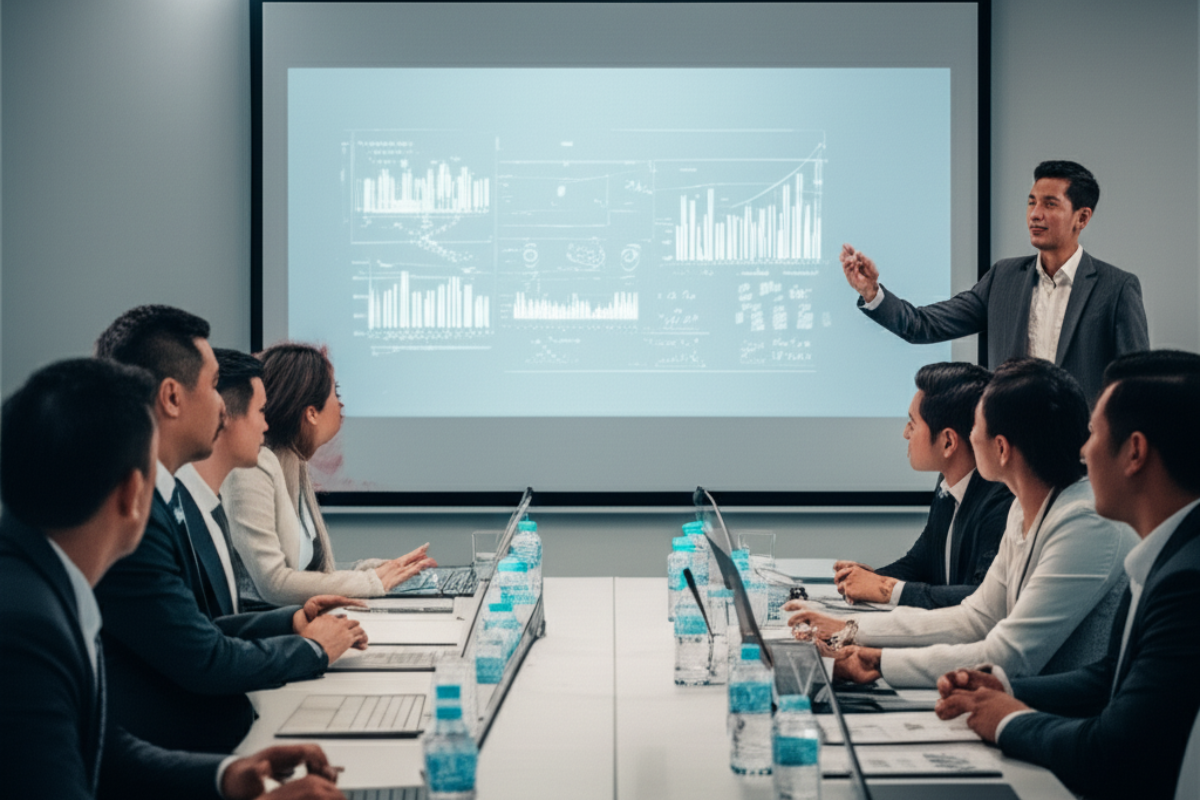The Philippines is at a critical juncture in its development journey, embracing community development as a key driver of national progress. Anchored by the Philippine Development Plan 2023–2028, the country is pursuing inclusive growth, infrastructure modernization, and social protection to uplift all Filipinos, especially the most vulnerable. These strategies emphasize sustainability, resilience, and participatory governance, aiming to build empowered, connected, and thriving communities across the archipelago.
Philippine Development Plan 2023–2028: Blueprint for Transformation
The Philippine Development Plan (PDP) 2023–2028 serves as the cornerstone of the nation’s community development efforts, outlining a comprehensive framework for deep and fundamental transformation across social, economic, institutional, and environmental sectors. This ambitious plan is designed to accelerate job creation and reduce poverty, with the ultimate goal of achieving a prosperous, inclusive, and resilient society by 2028.
The Philippine Development Plan (PDP) prioritizes individual and family capabilities through education, health, and social protection for sustainable growth and meaningful participation. It focuses on transforming production sectors for quality jobs and competitive products via modernization. Establishing livable communities with adequate infrastructure, social services, and environmental protection is also key. Food security, nutrition, and robust social protection systems are crucial for vulnerable populations. These integrated strategies aim to reduce inequality and foster inclusive growth.
Infrastructure Modernization: “Build Better More”
President Ferdinand Marcos Jr.’s “Build Better More” program is a key initiative in the Philippines designed to close substantial infrastructure deficits. Acknowledging infrastructure’s vital role in fostering economic growth and social progress, the program aims to improve physical connectivity and crucial services nationwide.
This initiative goes beyond traditional infrastructure projects like roads, bridges, and transportation networks. It also targets water resource management, health facilities, digital infrastructure, and agricultural support systems. By improving these sectors, the program aims to create a more integrated and efficient economy that benefits both urban and rural areas.
“Build Better More” prioritizes rural development to address acute poverty and limited access to services. Investments in rural infrastructure aim to bridge regional disparities by expanding internet connectivity, improving irrigation, and upgrading health clinics. The program integrates climate resilience and environmental factors to foster sustainable infrastructure development, encouraging inclusive growth and strengthening national unity among Filipinos.
Community-Driven and Participatory Development
A transformative trend in Philippine community development is the shift toward community-driven and participatory models. These approaches empower local communities to identify their own needs, design solutions, and actively participate in implementation and monitoring. This marks a departure from top-down development, fostering greater ownership, transparency, and accountability.
Participatory community development programs like the Social Development Management Program (SDMP) in the Philippines engage local leaders and residents to identify and address community priorities such as education, health, and livelihoods, ensuring relevant and sustainable interventions. Quezon City’s 2025-2028 development plan engaged over 5,000 civil society organizations in policy creation. This inclusive strategy aims to strengthen social cohesion, trust, and empower local communities for effective and fair development.
Sustainability and Resilience in Urban Planning
As the Philippines faces increasing climate risks and rapid urbanization, sustainability and resilience have become central to community development and urban planning. The vision is to create smart, livable communities that balance economic opportunity, social inclusion, and environmental stewardship.
Green building and climate-resilient design are key strategies being integrated into new developments. These include energy-efficient construction, use of sustainable materials, and infrastructure designed to withstand extreme weather events such as typhoons and floods. Urban planners and developers are also prioritizing the preservation of natural habitats and heritage sites, recognizing their importance for ecological balance and cultural identity.
Smart infrastructure and digital connectivity improve community functions, quality of life, and sustainable growth. Community-based tourism and sustainable businesses build resilient economies by generating income and preserving culture. These initiatives help Filipino communities adapt, recover, and thrive.
Social Protection, Food Security, and Equity
Social protection and food security remain foundational to the Philippines’ community development agenda. Vulnerable populations-including women, children, indigenous peoples, and the poorest households-face heightened risks from poverty, conflict, and climate change. Addressing their needs is critical for building inclusive and equitable communities.
The World Food Programme’s strategic plan for 2024–2028 highlights nutrition-sensitive interventions such as the home-grown school feeding program. This initiative sources food locally to provide nutritious meals to schoolchildren, supporting both health and local farmers. It also fosters social cohesion and promotes gender equality by empowering women farmers and caregivers.
The Mandanas-Garcia ruling empowers local governments with financial management for more responsive social services, enhancing community resilience through tailored programs. Integrating humanitarian, development, and peace-building approaches addresses root causes of exclusion, promoting equity and empowering marginalized groups. Robust emergency preparedness ensures communities can withstand shocks, safeguarding national development progress.
Key Takeaway
The Philippines’ community development strategies embody a holistic, inclusive, and forward-looking approach. The country is building resilient communities capable of meeting future challenges by combining a strong national vision with infrastructure modernization, participatory governance, sustainability, and social protection. These integrated efforts are essential for achieving the Philippine Development Plan’s goals of poverty reduction, inclusive growth, and sustainable development-laying the foundation for a prosperous and equitable “Bagong Pilipinas” by 2028.




